In this article:
Moisturizers are a holy grail of skin care. Regularly moisturizing the skin is vital to keep it hydrated, young looking, smooth, and healthy and to prevent dryness-related problems. (1)
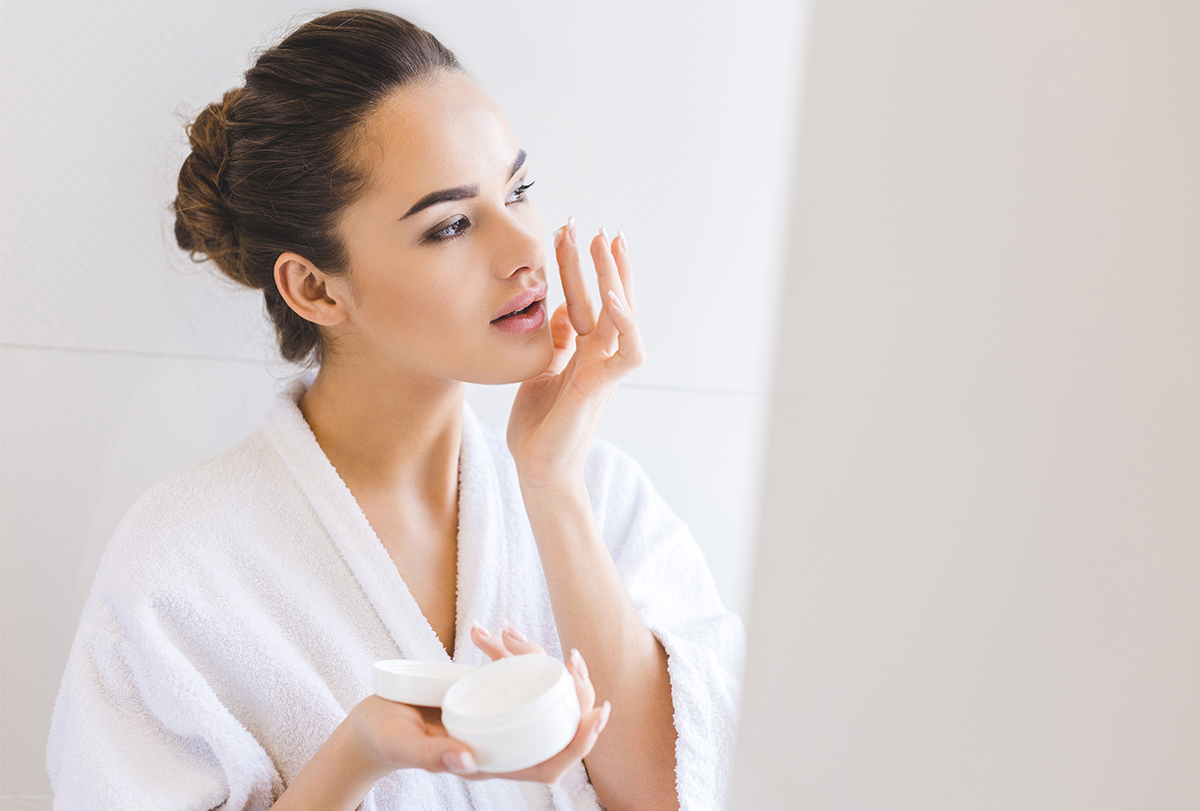
While this product is fairly simple to use, there are a few things that can decrease its effectiveness.
Knowing the common mistakes when using a moisturizer and rectifying them can improve your skin care routine. Here are some tips that can increase the effectiveness of moisturizers:
1. Use a Moisturizer Regularly
Moisturizers are an essential part of any skin care routine. Since the skin needs proper hydration throughout the day, it is suggested to include the use of moisturizer in your morning and evening skin care. It is best to apply the moisturizer to cleansed skin.
2. Apply the Moisturizer to Damp Skin
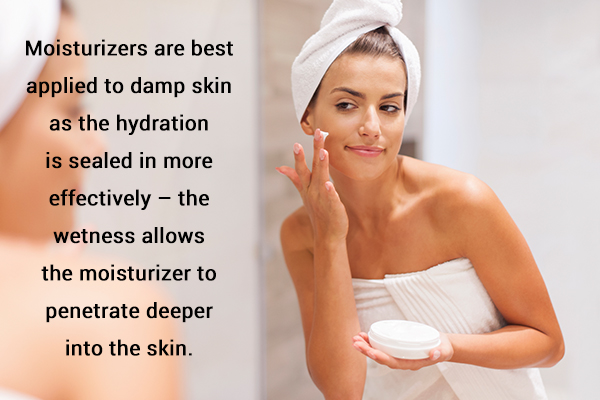
Moisturizers are best applied to damp skin as the hydration is sealed in more effectively – the wetness allows the moisturizer to penetrate deeper into the skin. Therefore, after a shower or bath, do not completely dry your skin, and then apply a moisturizer.
3. Allow the Moisturizer to Get Absorbed
Refrain from applying any product such as foundation over the moisturizer immediately as it prevents the moisturizer from getting absorbed into the pores.
Allow the hydration and nutrients to penetrate the skin first for at least 3 minutes before layering on any product on it. This also enables the makeup to last longer.
4. Select Your Moisturizer Carefully
Since moisturizers are essential for your skin, it is crucial to choose a suitable product. Go through the ingredients before purchasing a moisturizer rather than relying on its marketing and packaging alone.
Look for hydrating ingredients such as shea butter, olive oil, coconut oil, and aloe vera in your moisturizer. Additionally, avoid moisturizers that contain filling ingredients. You may also opt for moisturizers that double as sunscreen, with SPF 15 or higher. (2)
5. Apply Moisturizers Regardless of Your Skin Type
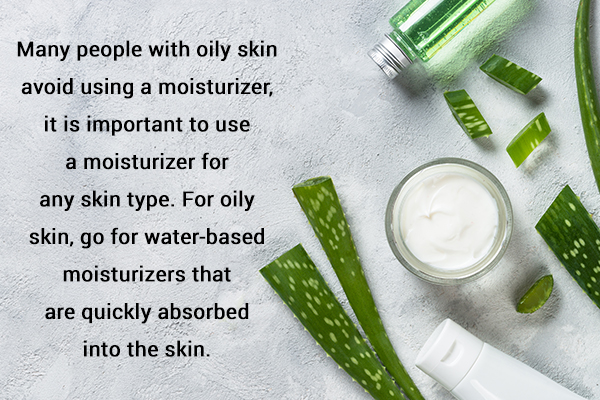
Many people with oily skin avoid using a moisturizer, believing that oily skin doesn’t require moisturization or will look greasier when applied with a moisturizer.
However, it is important to use a moisturizer for any skin type. For oily skin, go for water-based moisturizers that are quickly absorbed into the skin.
6. Apply Moisturizer to the Whole Body
A lot of people regularly use moisturizers but often limit the application to the face. But the whole of your body requires moisturization, too! Apply moisturizing cream to your hands, legs, neck, and chest as well. This prevents your skin from drying out.
7. Use a Limited Amount of Product
If your skin feels oily after applying a moisturizer, you may be using excessive amounts of the product. A proper amount of moisturizer helps make your skin hydrated without making one spot too oily or dry for several hours. You can also change the product if it doesn’t work for you.
8. Use Hand Creams
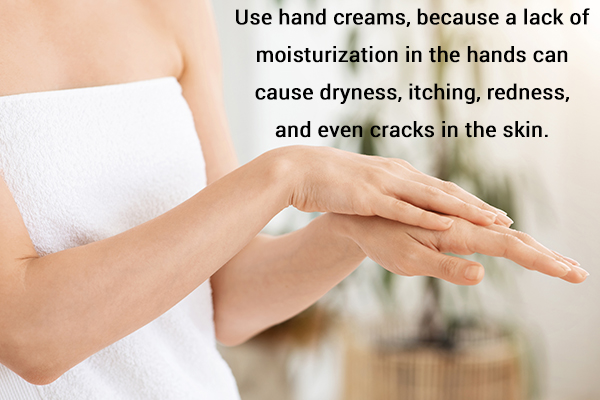
A lack of moisturization in the hands can cause dryness, itching, redness, and even cracks in the skin. Therefore, it is recommended to use a hand cream that is easily absorbed by the skin.
You can also choose a cream containing SPF 15 or higher to double as sunscreen. Select hand creams that contain shea butter, vitamin E, essential oils, or glycerin to help hydrate your skin.
9. Buy a Foot Moisturizer
Similar to the rest of your body, your feet need moisturization as well. In fact, your feet may require more care as they carry your body’s weight throughout the day.
To provide your foot with appropriate moisturization, use a foot moisturizer that contains lactic acid, urea, or alpha hydroxyl acids. These creams not only moisturize the skin but also remove the dead skin cells and prevent skin thickening.
10. Use Weather-Appropriate Moisturizers
Altering your moisturizer according to the season can be highly beneficial to your skin. Prefer oil-based, heavy moisturizers in the winter. Water-based lotions may not last as long in the winter as oil-based moisturizers.
On the other hand, select water-based, light moisturizers for summer as the humidity increases oil production and your skin doesn’t require excessive moisturization.
11. Change the Product
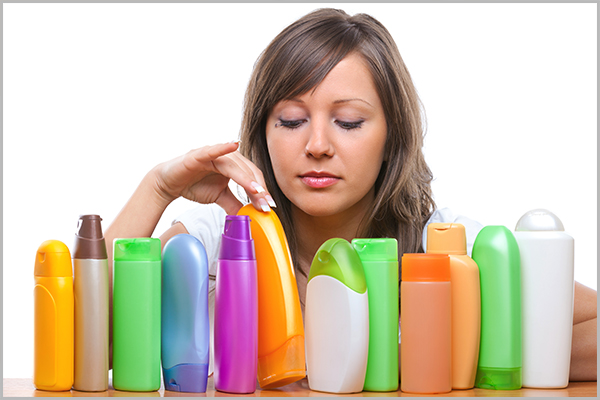
It is suggested to change your moisturizer periodically, especially as your skin changes. The products your skin needs at a young age differ largely from the products beneficial for aging skin.
Moreover, your skin may adapt to the moisturizer you have been using for years, rendering it ineffective. Thus, it is wise to change your product every once in a while.
12. Exfoliate Weekly
Exfoliating your skin one to two times a week to remove dead skin cells is essential to keep your skin healthy. This not only prevents dullness but also enables the moisturizer to penetrate the skin easily and get absorbed. However, avoid overexfoliation or harsh exfoliation to preserve the skin structure.
Final Word
Well-moisturized and hydrated skin is not only aesthetically pleasing but also indicative of good skin health. Moisturized skin glows and looks young, smooth, and supple, but a lack of moisturization can make your skin dry and flaky.
To keep your skin well hydrated, use a moisturizer daily. This may be a fairly simple part of any skin care routine, but it is essential to know the dos and don’ts of moisturizer use to reap maximum benefits from the product.
- Was this article helpful?
- YES, THANKS!NOT REALLY


